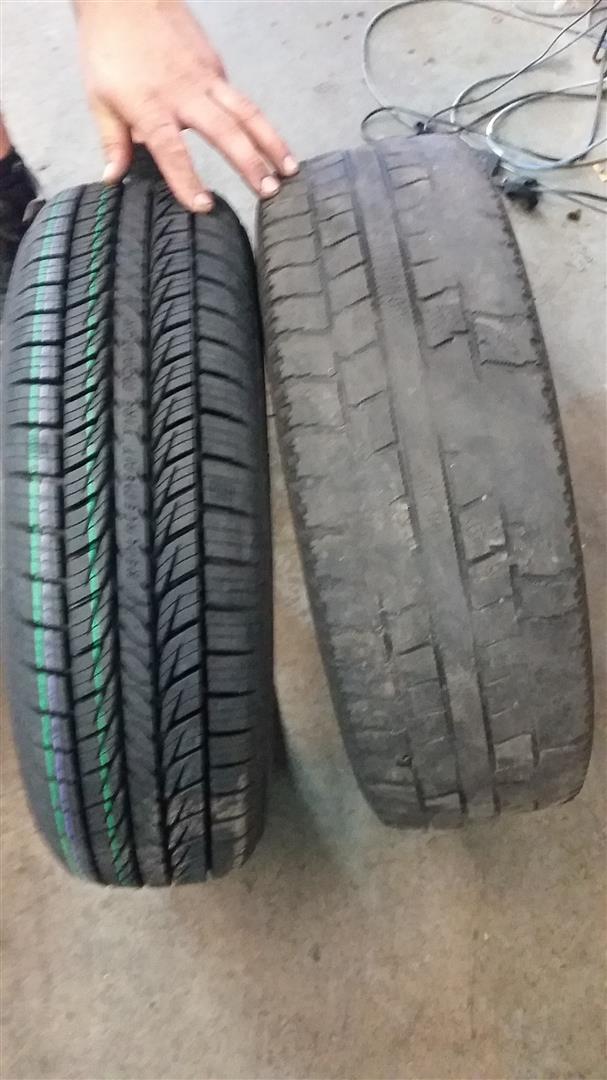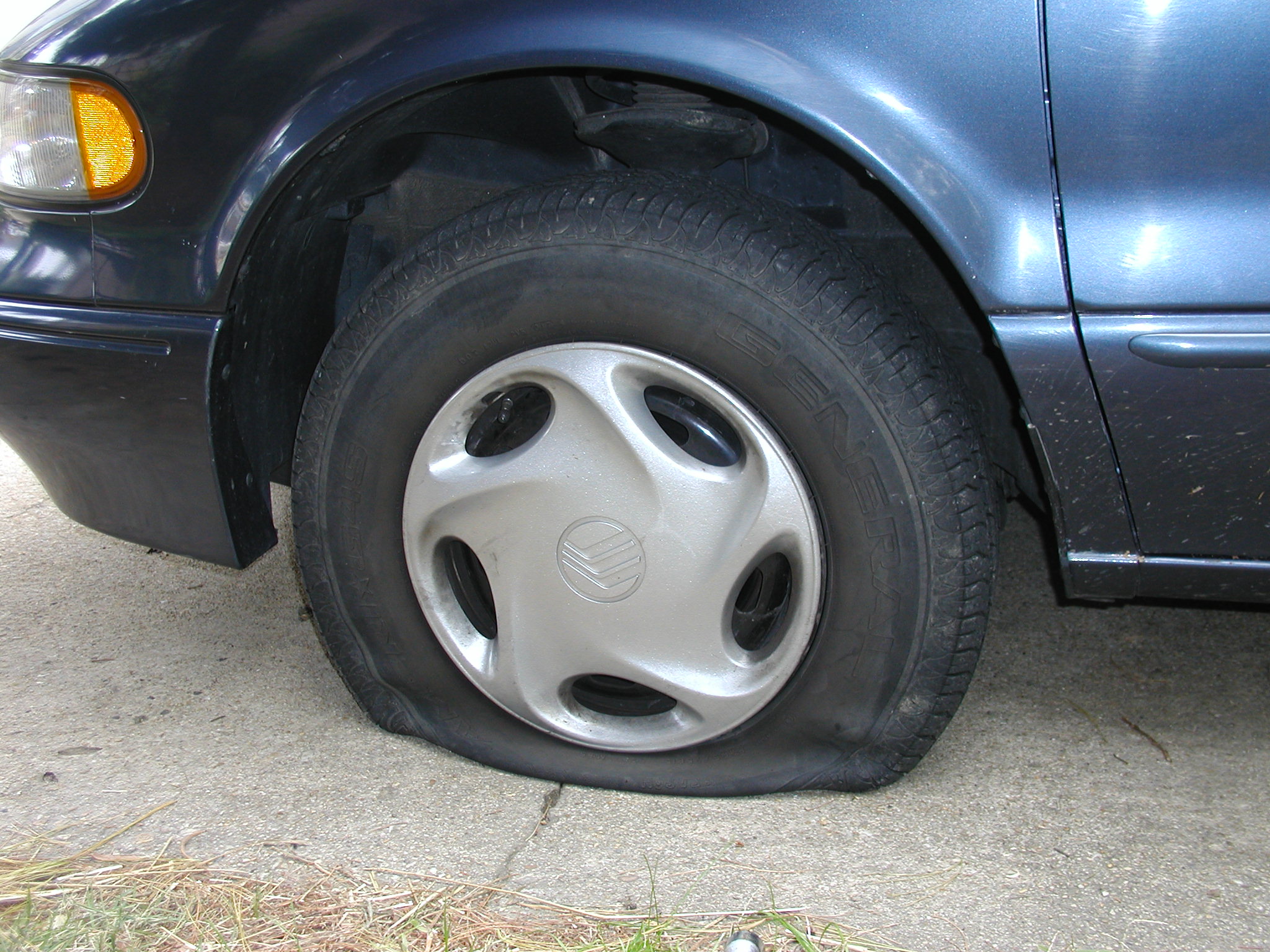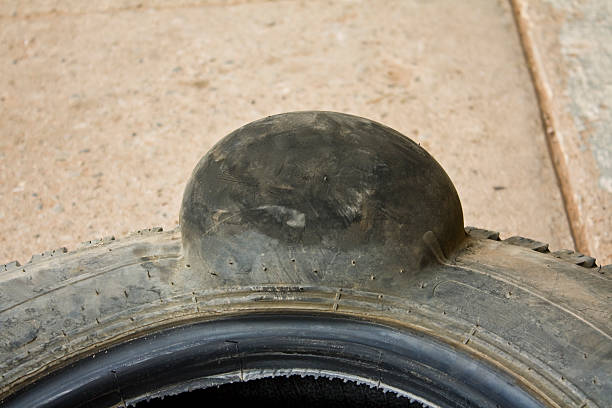
Common tire problems are something almost every car owner universally has dealt with in one way or another. Many drivers dealing with tire problems for the very first time feel overwhelmed by the many possible explanations as to why their vehicle's wheels might be malfunctioning. In this article we will give you a comprehensive guide for diagnosing & fixing many common tire problems you may come across when driving on the road.
Identifying The Problem:
When identifying whether your cars tires are malfunctioning or not-- many people will state it will be self explanatory just based on how it feels driving the car. Although this may seem simple in theory-- identifying exactly what is happening with your wheels is essential in expediting the diagnosing process by ruling out other possible explanations & focusing on one specific issue at hand. This means being aware of many common tire problem symptoms-- such as: vibrations when driving, tire age, cracks in or around your tire, and noises when driving. By being aware of these indicators it is possible to handle them sooner than later, allowing your vehicle to be in better shape overall & allow you to get back on the road faster.
Diagnosing The Problem:
In diagnosing the specific problem wrong with your cars tires you must be aware of all the possible issues wrong with a cars tires. These common tire problems include:misalignment, punctures, bubbles, unevenly worn tires, tires damaged by age, poorly inflated tires, and etc. Each of these problems vary in severity & technical know-how in order to fix, including the use of special equipment used by technicians specifically designed for a diagnosis. So again seeking out a professional auto shop such as DJ Foreign Auto Care would be highly recommended-- especially since lots of these procedures will include removing the tire & it's specific parts, sometimes including replacing the entire wheel itself.
Fixing Your Tire:
After your diagnosis-- fixing whatever problem you may have will include following various steps in order to fully rectify whatever issue was affecting your tire's performance. This is why we will go over a list of solutions for the various car problems listed above-- including whether or not you should fix them yourself or if you should consult a mechanic.

Flat Tires:
When fixing a flat/punctured tire various amount of aspects regarding the tire's age, tread, & where the hole is-- all will affect whether or not a replacement or patch is needed. If the tire is punctured right on the edge of the wheel, if the tire is punctured around 1/2 an inch from the start of the internal steel belt, and if the tire is older than five years. A replacement would be necessary-- if all these prerequisites do not match your tires puncture you can continue moving forward in fixing your tire. This process will require finding the exact place the puncture is byfeeling around the tire as well as listening for any hissing noises that could be leaking air from your wheel. After this you should be able to use a tire puncture sealantwhich we recommend researching before hand, in order to ensure you are using the best brand of sealant for your car. After pulling out any foreign objects from your tire & reading the instructions on the sealant can before hand, make sure you turn your tire until the valve is at the top of the wheel. Once this is done unscrew your valve cap, and securely attach the nozzle of your sealant and wait for the sealant to finish coating the tires puncture. Then drive back and forth to evenly disperse it's contents inside the tire in order to avoid any lumps or bubbles building inside. Although this process heavily differs from using a plug rather than a sealant-- This would require youtaking the wheel off, removing the object that punctured the tire, cleaning the hole, threading the plug, inserting it, pumping air back into the tire, and reinstalling the wheel. Each of these processes are not meant to lastbut rather provide temporary stability and access to driving in order for you to fix the problem at a later date.
Misalignment:
Misalignments are usually a lengthy/costly procedure done alone & it is heavily recommended contacting a technician instead to fix the problem. This is due to a high possibility of further damage to your wheel or negatively affecting other internal parts of your vehicle. Especially since preforming an alignment alone would require special equipment used by technicians at auto shops which are extremely expensive, as well as having to constantly fact check that the resources you are using to fix this problem are valid & know what they are talking about.
Over Inflated Tires:
Overinflated tires are a very dangerous issue that should be corrected immediately, this is because an overinflated tire could cause extreme damage to your car & more importantly you if you decide to drive on them. This is due to over inflated tires being more susceptible to a blow out whenever driving on the road, which previously stated is a very serious problem that should be looked at by a professional technician. Although choosing to fix this problem by yourself is an option-- again seeing a technician is always recommended. The operation for removing excess air from the tire includes finding the valve stem on the over inflated tire and pressing down on the exposed pin on the valve while intermediately checking that the tire is losing the right amount of air until it meets the recommended PSI (this is achieved by using a tire gauge tool to check the PSI on the cars tire) (Finding your car's necessary tire pressure can be found in the vehicle owners manual). But keep in mind if you have been driving on your cars tire while it has been overinflated for a while-- it is suggested that you should get a completely new tire due to the previous one being heavily affected by wear & tear-- distorting the shape of the tire & it's durability.
Unevenly Worn Tires:
When it comes to unevenly worn tires-- there is no fix except replacing the tire due to the fact that once tire wear begins to happen it cannot be stopped. There are certain fixes available but all of them mainly involve preventing the issue from getting worse, rather than fixing the tire altogether. This is due to the rubber on the cars tire not being able to be replaced once it happens leading to a technician's help to replace the tire with a new one.
Under inflated Tires:
Similar to over inflated tires-- under inflated tires are a very serious problem and must be fixed as soon as possible. This is because under inflated tires can lead to blowouts, extreme wear & tear, and tread separation all problems previously stated in the article regarding over inflation. This is because when driving on an under inflated tire, more contact is happening with the road due to the tire not being inflated correctly, causing a faster decrease of functionality & quality. In order to fix this problem you must first make sure when filling up your tire you have not taken it for a long drive or left your car out in the sun for too long-- this is because manufactures have set the recommended PSI limit for cool tires. Then begin to remove your valve stem cap, check the existing pressure with a tire pressure gauge, look at your cars manual to find the needed PSI limit for your car, and finally inflate the tires using an air pump.

Bubbles:
If your car happens to have Bubbles in it's tires there is nothing a mechanic nor you can do about it except replacing the tire altogether. This is an important problem that should be checked out immediately due to the fact that a bubble in your tire could then lead to a blow out when driving. If you do happen to have a bubble in your car promptly contact your local auto shop such as DJ Foreign Auto Care and schedule an appointment immediately in order for your tire to be replaced.
Old Tires Vs New Tires:
Many manufactures & mechanics suggest to change your tires around every 5 years or so. This is due to wear and tear affecting the functionality & durability of your tires over time. Continuing to drive with old tires will inevitably lead to larger problems in the future for your car, as well as it being very dangerous.
It is important to address any issues you are experiencing with your European vehicle right away, since the longer you wait to get the vehicle fixed, the more likely additional issues will arise, costing you even more money in the long run. Make an online appointment at DJ Foreign Auto Care or give us a call at: 612-567-5908 if you’re having problems with your tires. We’d be happy to service your vehicle and perform all necessary services or repairs.